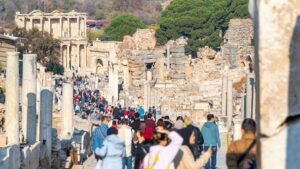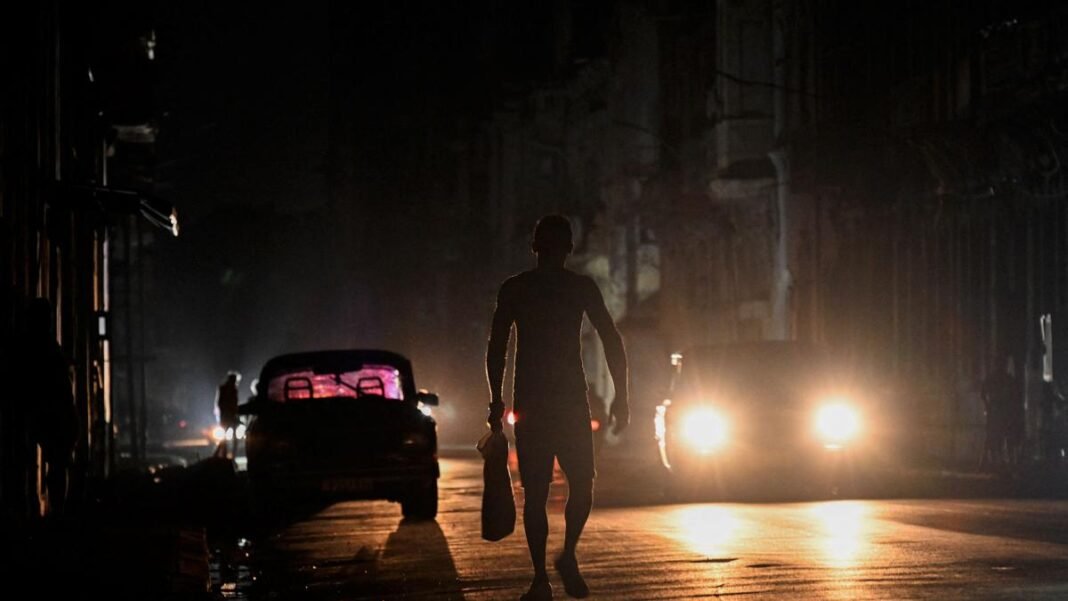Cuba is currently experiencing another extensive power outage, leaving a significant portion of the population without electricity.
While residents endure frequent blackouts, the MINTUR addresses the widespread blackout in Cuba by asserting that the tourism sector is insulated from these disruptions due to a robust energy backup system.
However, this assertion has been met with skepticism, as visual evidence from prominent hotels indicates a different reality. This disparity in energy treatment between locals and tourists has led to considerable frustration and discussion.
The Controversy Surrounding Energy Distribution in Cuba
The situation regarding the general blackout in Cuba has ignited considerable debate among both Cubans and international observers.
MINTUR recently announced that the tourism sector benefits from a reliable energy backup, ensuring that hotels and related services operate without interruption.
Nevertheless, this claim has been met with widespread doubt, particularly as images and videos emerging from Havana tell a different story.
While MINTUR maintains that the tourism industry is not impacted by the ongoing blackouts, many citizens question the equity of such prioritization during a persistent energy crisis.
Cuba’s Fourth Major Blackout in Six Months
At around 8:15 PM, the National Electric System (SEN) experienced another significant failure due to severe fluctuations.
This incident marks the fourth major blackout in under six months, underscoring the vulnerability of the island’s energy infrastructure.
In the meantime, MINTUR continues to provide reassurances to tourists, claiming that hotels and non-hotel facilities remain functional thanks to dedicated energy reserves.
Despite these reassurances, reports from local residents and independent sources cast doubt on the validity of these statements.
Contradictory Visual Evidence
Despite assertions from government officials that tourism remains unaffected, social media images present a contrasting reality.
Videos depict renowned hotels, such as the Nacional de La Habana, shrouded in darkness, which directly challenges MINTUR’s claims.
This visual documentation implies that the alleged “energy backup” system may not be as dependent as the authorities suggest. Objections, perceptions of mismanagement and a lack of transparency are intensifying among both Cuban citizens and international observers.
The Disparity Between Citizens and Tourists
Cuban citizens are enduring extended blackouts that significantly disrupt their daily routines. Official statistics indicate that energy production is currently at a mere 110 megawatts (MW), while daily demand can soar to 1,800 MW during the day and exceed 3,200 MW at night.
This glaring imbalance has fueled rising frustration, with many questioning the rationale behind prioritizing the tourism sector over essential household electricity needs.

The Cuban government, through MINTUR addresses the widespread blackout in Cuba by justifying its focus on tourism, highlighting its importance as a vital revenue source.
However, citizens are increasingly expressing their discontent regarding resource distribution, especially when it compromises their access to electricity. “Hotels have electricity and air conditioning, but we can’t even keep our food fresh,” lamented one Cuban on social media.
Public Discontent and the Ongoing Energy Crisis
As the national power grid remains inconsistent, the Cuban population continues to face uncertainty. The prolonged restoration of complete electricity services has exacerbated social unrest.
Many citizens view the statements from MINTUR as disconnected from the realities experienced by everyday individuals.
In a nation where electricity has become a luxury, the emphasis on tourism at the expense of local needs only widens the gap between governmental economic policies and the welfare of its citizens.
The Union Eléctrica de Cuba (UNE) is actively working to stabilize the National Electric System; however, a definitive timeline for full restoration is still lacking.
In the meantime, public dissatisfaction is mounting, with many questioning whether the government’s strategies will ever alleviate the persistent energy crisis.
As Cubans contend with frequent blackouts and unreliable power supply, the prioritization of electricity for tourists over residents remains a contentious topic.
While MINTUR’s comments regarding the General Blackout in Cuba may have aimed to reassure visitors, they have instead underscored the significant disparities faced by the local community.
Expert Editorial Comment
The recent widespread blackout in Cuba has once again highlighted the weaknesses in the island’s energy infrastructure.
MINTUR addresses the widespread blackout in Cuba by seeking to convey a sense of stability within the tourism sector, but the reality tells a different story.
The glaring disparity between the hardships faced by the Cuban population and the government’s focus on tourism has only intensified public frustration. Without enhancement substantials to the national electric grid, citizen discontent is likely to escalate.
It is essential to tackle this issue with transparency and equity to rebuild public trust and ensure a fairer allocation of resources.

